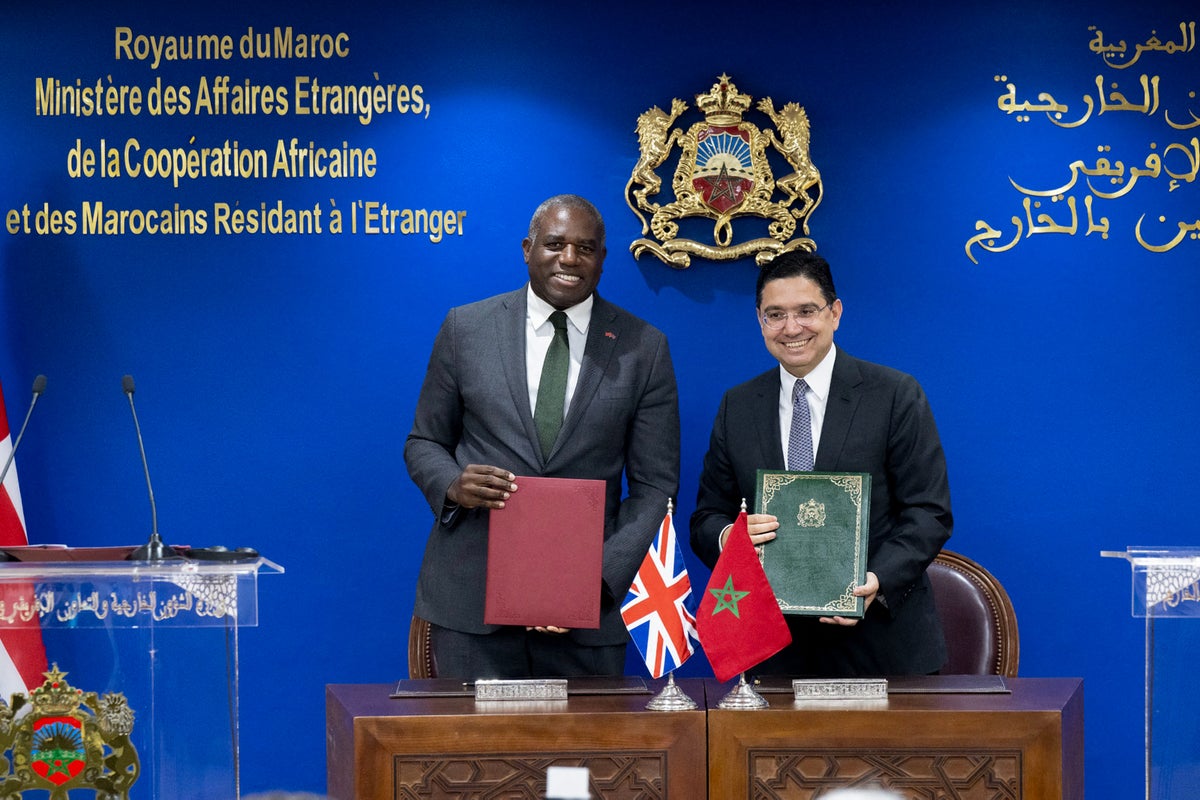Sir Keir Starmer’s government has announced a major change in UK foreign policy in exchange for an economic deal with one of the continent’s fastest-growing economies.
Since the end of Spanish rule in 1975, there has been a long-running territorial dispute between Morocco and the Popular Front for the Liberation of Saguia el-Hamra and Rio de Oro (Polisario Front) over a region known as Western Sahara.
Britain has so far stayed out of the controversy. But now, after five decades, the British government has agreed for the first time to join Israel, France and Germany in supporting the north African kingdom’s claim to the territory.
The deal puts British companies at the front of the queue to deliver infrastructure for the 2030 Fifa World Cup as well as other major projects.

The deal with Morocco’s ministries of water, health, and trade will unlock contracts in a market where public procurement opportunities are estimated to be worth around £33bn over the next three years, including a £1.2bn Casablanca airport project, with UK companies forming a key part of Morocco’s “Airports 2030” programme.
An agreement to become a partner in Morocco’s national healthcare transformation reforms, worth over £2bn, will create opportunities for the UK health sector, including a £150m project that will involve Britain providing clinical expertise for a 250-bed hospital in Casablanca, driving revenue for an NHS trust.
Britain’s strengthened partnership with Morocco advances a relationship that is already worth more than £4bn annually, and unlocks opportunities for UK businesses. It was announced during the foreign secretary’s visit to Morocco ahead of the 2030 World Cup.
Mr Lammy said: “Africa has one of the greatest growth potentials of any continent – this young, dynamic population makes the continent an engine room for growth. Growth and prosperity will underpin our relationship with Morocco and beyond, helping forge new opportunities at home and abroad.”
He added: “The UK has chosen to endorse autonomy within the Moroccan state as the most credible, viable, and pragmatic basis for a mutually agreed and lasting solution to the Western Sahara dispute, one that can deliver on our commitments to conflict resolution in the region and self-determination for the people of Western Sahara.”
The recognition of Morocco’s sovereignty over Western Sahara after 50 years is linked to supporting the autonomy plan for the region, which would allow for a degree of self-rule.
British trade minister Douglas Alexander said: “Morocco is becoming an increasingly important trade and investment partner for the UK. Growth is this government’s top priority, and stronger ties with economies like Morocco will pave the way for new opportunities, supporting British businesses and creating jobs.
“UK companies are already securing major commercial wins in Morocco, playing a vital role in delivering critical infrastructure for the 2030 World Cup.”




